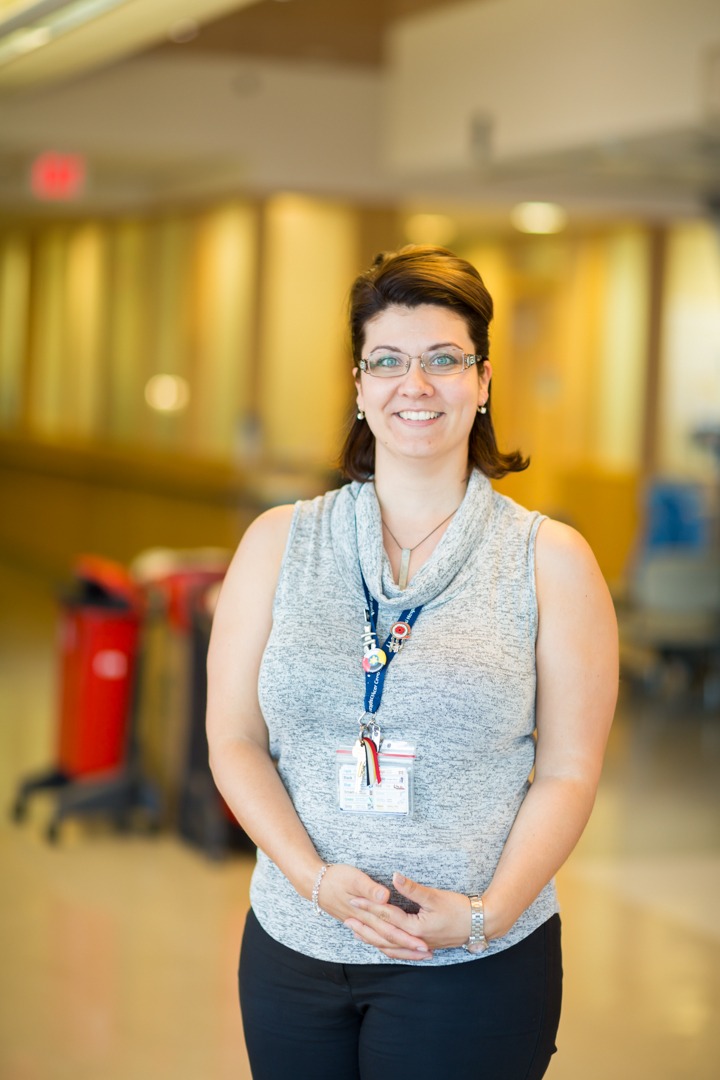
Introducing… an Aboriginal patient navigator
Deena Klodt is an Aboriginal patient navigator in the Regional Cancer Program based at Juravinski Cancer Centre. She has been in her role with Hamilton Health Sciences (HHS) for three years.
What made you enter your field of work?
I am passionate about providing meaningful culturally safe care for Aboriginal people and helping others understand what that really looks like. Culturally safe care is more than just being aware of different foods people eat; it impacts every aspect of the clinicians and patient interaction and relationship.
That was a good day being able to support this gentleman in his final journey…
What do you love most about your job?
Given the unique position I am in often times I am fortunate enough that I get an opportunity to spend time with my patient hearing their story and establishing trust. I love being able to be a constant for my patients in these very scary circumstances that often times involve many different professionals. Being part of their entire cancer journey whether its survivorship or palliation.
Tell us about your most gratifying experience at HHS
I worked with a gentlemen and his family for the last few month of his life. This gentleman was extremely fearful of institutions including hospitals and health care providers due to a variety of things but largely due to the fact he was a residential school survivor and experienced much trauma in his youth. He could not return home to pass due to his high care needs and was adamant that he did not want to pass in a hospital setting. Working with the staff on the palliative unit and elders from his community I developed a spiritual care plan for this gentleman and we were able to make arrangements for him to pass outside in a garden area. He was moved outside in his final hours with his family and elders present and they were able to drum and smudge (dried herbs that are burned as part of a ceremony) and say their goodbyes. He passed within a few hours of being moved outside. That was a good day being able to support this gentleman in his final journey in a way that was peaceful for him.

What do you wish you had more time for at work?
I genuinely wish I had more time to be in the community promoting my role. I sometimes get referrals for patients and they have been coming to the cancer centre for numerous months already and I am disappointed that I didn’t get their referral earlier. I find my role has the most value in those early days, during the earlier stages of their diagnosis when their anxiety is at its peak and when the cancer system is truly foreign to them.
What do you do after work to unwind?
I have two young boys so there is not a lot of “down time” after work. My activity generally includes sitting at the baseball diamond and swimming pool in the summer and hockey arena in the winter. I generally stop for a tea on the way to the activity and enjoy those 60 minutes or so to sit and watch my sons.
What are your short and long term career goals?
The Aboriginal cancer program is expanding adding another staff to join the program which currently consists of me and my clinical lead Dr. Amy Monture. My short term goal with the additional of the new staff is to work as a team to increase awareness of my role within our Local Health Integration Network (LHIN) primarily in the Niagara region. There is a large Aboriginal population in Niagara that are not accessing my services. Long term I am excited to continue to be a part of the great work that HHS is doing in relationship building with our Aboriginal partners.
